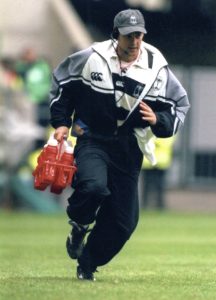Why Physiotherapy?
Physiotherapy is a healthcare profession that focuses on maximising your recovery from injury and pain using current medical science as its foundation. Its goal is to optimise the body’s own intrinsic healing processes using natural, evidence based methods. An extensive medical knowledge of the body’s physiology, anatomy, function and mechanics is the basis for accurate medical assessment, diagnosis and treatment of your problem. Once the source and cause of pain or dysfunction is clearly established, a variety of largely “hands on” treatment techniques can be used to relieve pain, restore joint movement, and ease protective muscle tension. “Sorting the cause” is key to this treatment approach, and skilled exercise prescription is used to stretch, strengthen and stabilise in a way relevant to how we actually function and move. The goal is not to just feel better, but to stay better long-term. Education also plays a primary role, to ensure that you understand what’s wrong, and what you can do to prevent further problems and stay pain free. More serious problems requiring specialist review and/or medical investigation are identified accurately and early by a university trained professional with extensive sports medicine and general clinical experience.
What can be treated?
Sports Injuries: Muscle strains, tears and bruising/haematomas; ligament and tendon overload, strains and tears; joint inflammation, swelling, and pain; knee cartilage injuries; overtraining and overuse injuries; impact trauma.; running injuries
Orthopaedic injuries: Rehabilitation following fractures, tendon surgery and joint surgery such as ligament reconstruction, meniscal cartilage trim/repair or hip/knee joint replacement. Nigel has a special interest in complex knee injury rehabilitation and problematic rehab following joint replacement.
Spinal pain: Disc injuries, nerve root compression and referred pain (sciatica); headache and jaw pain; neck, mid-back and low-back postural pain; poor functional stability strength; adolescent back pain, facet joint pain, whiplash injuries, and protective muscle spasm.
Work related pain: headache, neck, upper limb and spinal pain related to work postures and repetitive activities. Nigel has a particular interest in cervicogenic (neck origin) headache, and extensive experience in addressing the source of postural pain in addition to hands on treatment for symptom relief.
Chlidren's orthopaedic injuries, sports related pain, and postural pain: Nigel has extensive experience treating children following orthopaedic surgery or fracture immobilisation, common growth related pains like Sever's heel pain, Osgood Schlatters and patellofemoral pain, and study related postural spinal pain.

Posture/work related pain.
Whether you've had a specific accident at work, or you've developed posture related pain at your desk or vehicle, physiotherapy assessment can help accurately diagnosis the problem and identify/correct causative elements.
While "sorting the cause" in terms of correcting chair/desk/equipment setup is key to long term resolution, Nigel makes sure relief of current pain and stiffness is an equal priority with a combination of "hands on" treatment and simple self directed exercise and relief techniques for home and work.


